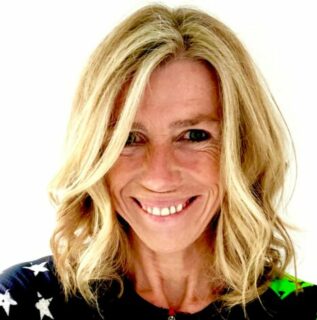ERC Advanced Grant for Professor Ellen Kuhl
Specialist for bioengineering receives 2.5 million euros for tissue research at FAU
The mechanics of biological tissue are the inspiration behind developing new soft materials using artificial intelligence. That is the aim of the “Discover” project that Prof. Dr. Ellen Kuhl, one of the leading specialists in bioengineering, will launch at Friedrich-Alexander-Universität Erlangen-Nürnberg (FAU). Kuhl has received an Advanced Grant worth 2.5 million euros for her project from the European Research Council (ERC) for a funding period of five years.
Ellen Kuhl says that she always gets the best ideas when running or swimming. The Stanford professor for mechanical engineering and bioengineering is not only a passionate scientist, she is also an enthusiastic triathlete, who has participated three times in the legendary Ironman World Championship in Hawaii. “For me, it’s a great opportunity to be outside, do sport and at the same time think about scripts, presentations or new projects,” she says. Kuhl particularly enjoys the long distance runs, and sees close parallels to her research, because in both instances you have to be able to pace yourself and react to unexpected factors. That apart, a triathlon is by its very nature an interdisciplinary event, you will not be successful if you just focus on one discipline.
Artificial intelligence and open source should accelerate innovation
Ellen Kuhl is also remaining true to this approach in her project “Discover” that she is conducting with Prof. Dr. Paul Steinmann at the Chair of Technical Mechanics (LMT) at FAU. She has received a coveted Advanced Grant from the European Research Council for her research, which will provide her with funding of 2.5 million euros over the coming five years. Kuhl hopes to use her expertise in the physical modeling of biological tissue in order to develop innovative soft materials. “Soft materials play an integral role in many aspects of modern life, for example in the areas of autonomy, sustainability or medical engineering,” she explains. “The spectrum ranges from hydrogels and silicon to artificial meat or foam and rubber.”
Kuhl hopes that artificial intelligence will provide valuable assistance in coming to grips with the criteria for successful modeling. Machine learning and artificial neural networks should make it possible to automate the discovery of material models. At the same time, Kuhl places great emphasis on encouraging a democratic process of discovery: “We will set up an open source platform making the methods and results available to a wider and more diverse community,” she says. “In this way, we hope to accelerate scientific innovation.”
Long-standing ties to FAU
Ellen Kuhl has good reason for conducting the project “Discover” in Erlangen: “I have had close ties to FAU for many years,” she explains. “In 2016 already, I visited LMT on a Humboldt Research Award. During this time I was able to continue my research into the physics of the human brain and held lectures in neuromechanics, that met with great interest among students.” This contact led to what is to all intents and purposes a transatlantic network: the researcher has come over to LMT nearly every summer since then to share her research, and in return numerous doctoral candidates and researchers from FAU have spent time in Stanford. Ellen Kuhl: “FAU is very strong in research into neuromechanics and the physics of the human brain. This is indicated, for example, in the recently launched collaborative research center “Exploring Brain Mechanics.” I have already worked with some of the mechanics involved, and with the help of artificial intelligence, my work might make a contribution to being able to investigate results more quickly and in greater detail and to transfer them to other materials.”
About Professor Kuhl
Prof. Dr. Ellen Kuhl has been conducting research at the Department of Mechanical Engineering at Stanford University since 2007. Her specialization is the physics of living material, creating theoretical and computational models to simulate and predict the behavior of living systems. She studied Computational Engineering at Leibniz University Hannover, before completing a doctoral degree in Civil Engineering at the University of Stuttgart. In 2004 she gained her habilitation from TU Kaiserslautern, where she subsequently worked as an assistant professor. Ellen Kuhl is a founding member of the Living Heart Project, a translational research initiative aimed at revolutionizing research into the cardiovascular system using realistic simulation. She is an All American triathlete, has qualified three times for the Ironman World Championship and has run the marathon in Boston, Chicago and New York several times.
Further information:
FAU Press Office
Phone: + 49 9131 85 70229
presse@fau.de
